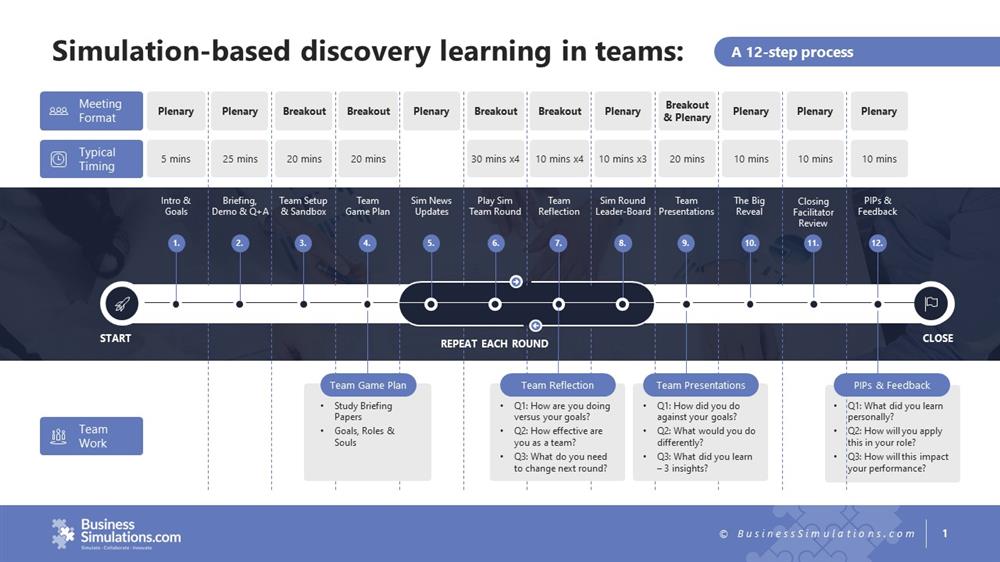One of the biggest challenges in using Business Simulations is making sure that the participants learn something as well as just being engaged and stimulated.
Our rule of thumb is for every 10 minutes of simulating or gaming you need to allow 20-30 minutes of preparation/reflection time.
So if you are playing a Business Simulation which takes 1 hour of "screen time" then you will need to allow another 2-3 hours if you want the participants to extract the full learning.
However allocating extra time in itself will not do it - you need to have a structured approach for preparation and reflection.
You can use the Twelve Step Process in the infographic to design an effective learning session around any Business Simulation Game.

To see the process animated just click the image above
The Simulation sits at the centre of the process (steps 5-7) but needs to be fully integrated into the other seven steps to adequately cover the team preparation and team reflection aspects of your learning event.
Effective learning is like a sandwich - the Business Simulations may be the "meat" but without the "bread" of preparation and reflection the learning sandwich will not be a truely satisfying and memorable experience for both the participants and the sponsors!